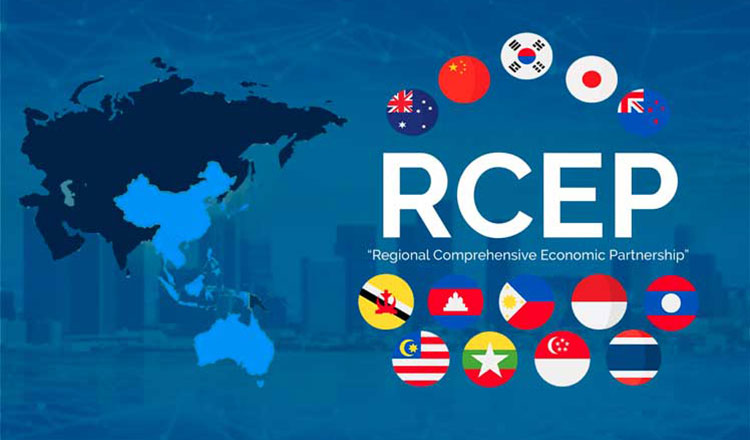Cambodia hopes RCEP, bilateral FTAs to boost exports of garment, footwear, travel goods
Cambodia has pinned hopes on the Regional Comprehensive Economic Partnership (RCEP) agreement and bilateral Free Trade Agreements (FTAs) to boost its exports of garment, footwear and travel (GFT) goods.
Cambodian Footwear Association president Ly Khun Thai said the Southeast Asian country has seen a significant rise in the exports of shoes to China and South Korea since the RCEP and Cambodia’s bilateral FTAs with China and South Korea entered into force last year.
“There are many countries under the RCEP agreement. With preferential tariffs, we expect to receive more purchase orders for our GFT products from those RCEP member countries,” he told a local TV channel on Friday.
The current major markets for Cambodia’s GFT goods are Europe, the United States and Canada.
His comments came after the kingdom recorded a drop by almost a fifth in the export of GFT products during the first half of 2023.
The country exported GFT goods worth 5.26 billion U.S. dollars from January to June this year, down 18.7 percent from 6.47 billion dollars in the same period last year, according to the General Department of Customs and Excise’s report.
The GFT goods industry is the largest foreign exchange earner for Cambodia. The sector consists of roughly 1,100 factories and branches, employing about 750,000 workers, mostly female.
Cambodian Ministry of Commerce’s undersecretary of state and spokesman Penn Sovicheat said the RCEP and Cambodia’s bilateral FTAs with China and South Korea are key contributors to boosting the country’s exports.
“These free trade deals have given and will continue to give a boost to our export growth in the long term,” he told Xinhua on Sunday.
Sovicheat reiterated that these trade pacts will help Cambodia graduate from its least-developed country status by 2027, achieve its ambitious goals of becoming an upper-middle-income country in 2030 and a high-income nation by 2050.
The RCEP comprises 15 Asia-Pacific countries, including the 10 ASEAN (the Association of Southeast Asian Nations) member states of Brunei, Cambodia, Indonesia, Laos, Malaysia, Myanmar, the Philippines, Singapore, Thailand and Vietnam, and their five trading partners, namely China, Japan, South Korea, Australia and New Zealand. Xinhua


 English
English




